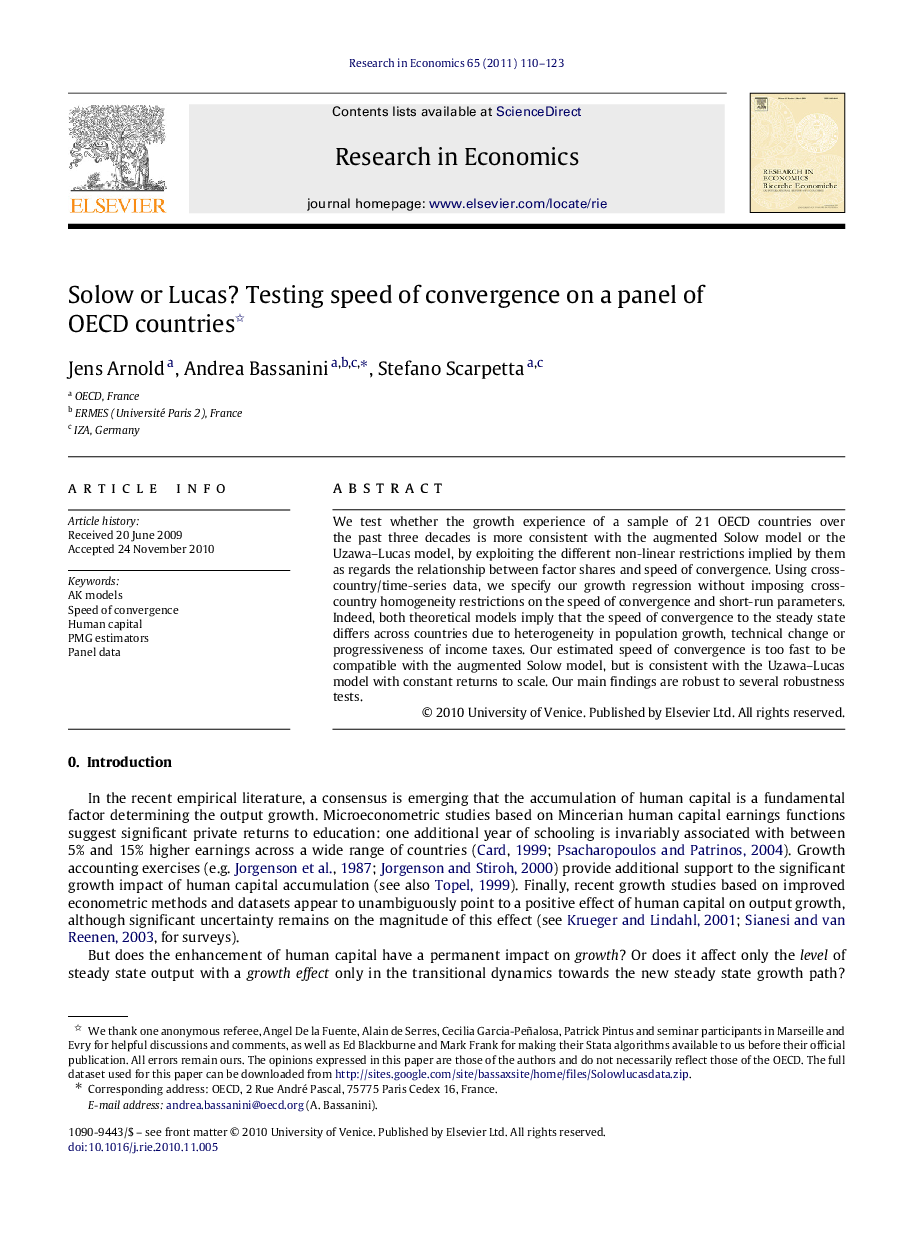| Article ID | Journal | Published Year | Pages | File Type |
|---|---|---|---|---|
| 984407 | Research in Economics | 2011 | 14 Pages |
We test whether the growth experience of a sample of 21 OECD countries over the past three decades is more consistent with the augmented Solow model or the Uzawa–Lucas model, by exploiting the different non-linear restrictions implied by them as regards the relationship between factor shares and speed of convergence. Using cross-country/time-series data, we specify our growth regression without imposing cross-country homogeneity restrictions on the speed of convergence and short-run parameters. Indeed, both theoretical models imply that the speed of convergence to the steady state differs across countries due to heterogeneity in population growth, technical change or progressiveness of income taxes. Our estimated speed of convergence is too fast to be compatible with the augmented Solow model, but is consistent with the Uzawa–Lucas model with constant returns to scale. Our main findings are robust to several robustness tests.
Research highlights► We test the consistency of OECD growth with the augmented Solow or Lucas models. ► The test exploits the predictions of these models as regards convergence speed. ► We impose no cross-country homogeneity on the speed of convergence. ► Estimated speed of convergence is too fast to be consistent with the Solow model. ► Convergence speed is consistent with the constant-return-to-scale Lucas model.
